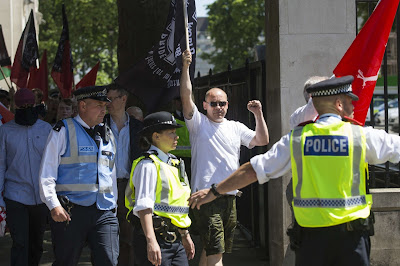Its editor Charles Bausman launched the website in September 2014, and described the rationale behind the website as follows:
It was started in September 2014 by a group of expats living in Russia who felt that coverage of Russia is biased and inaccurate.Ironically, this is what Russia Insider itself has been doing since its launch, namely publishing and re-publishing pieces of Russia's disinformation warfare against the West and Ukraine.
[...]
The problem is media control by a few corporations and interest groups, and their close ties with governments and business interests.
Instead of challenging, questioning, and fostering open discussion, they tend to promote those interests.
 |
| Charles Bausman, editor of Russia Insider and a regular commentator for Russia Today (RT) |


















